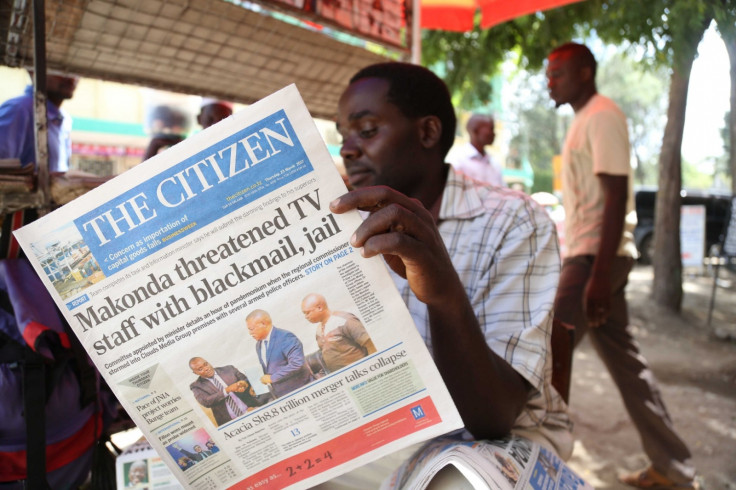Tanzania President warns media they 'don't have as much freedom' as they think
Comments come amid an apparent increasing restriction of basic freedoms in Tanzania.

Tanzania's President has warned media in Tanzania that they do not have as much freedom as they think.
President John Magufuli's message comes after he accused media owners of having exaggerated an incident in which a plain clothes security officer pointed a gun at sacked information minister Nape Nnaye to stop him from addressing the media.
"All the headlines and photos is about that story... It was just one person doing it, but it has been portrayed as if it was the government doing it or supporting it," Magufuli is quoted as saying by BBC on 24 March.
Magufuli, who sacked Nnaye for criticising one of his allies in what appeared to be an increasing restriction of basic freedoms, warned that such treatment of stories might incite violence among the general public.
Nnaye was sacked after he decided to open an investigation into powerful Dar es Salaam Regional Commissioner Paul Makonda, who was filmed storming into the offices privately-owned Clouds Media Group in Dar es Salaam to complain over its coverage of a story.
"Media owners be careful. You think you have freedom, but you don't have it to that extent," Magufuli added.
Home Affairs Minister Nchemba, meanwhile, said the security services should make use of the footage circulating online of the gun totting officer to identify him.
"Nape Mosses Nnauye is not a thug, he is a Tanzanian member of parliament with no criminal record," Nchemba said on his official Facebook page.
"Pointing a gun at him is not an act of professionalism, not Tanzanian and not Godly. And if this man was able to do that in front of cameras I can't imagine what he could have done (elsewhere)."
In December last year, Maxence Melo, the co-founder of JamiiForums, a blogging platform seen by many as Tanzania's top whistleblowing site, was arrested for not disclosing anonymous sources
Melo was one of the ardent critics of Tanzania's Cybercrimes Act, described it as a legal clampdown on social media and free speech.
© Copyright IBTimes 2025. All rights reserved.






















